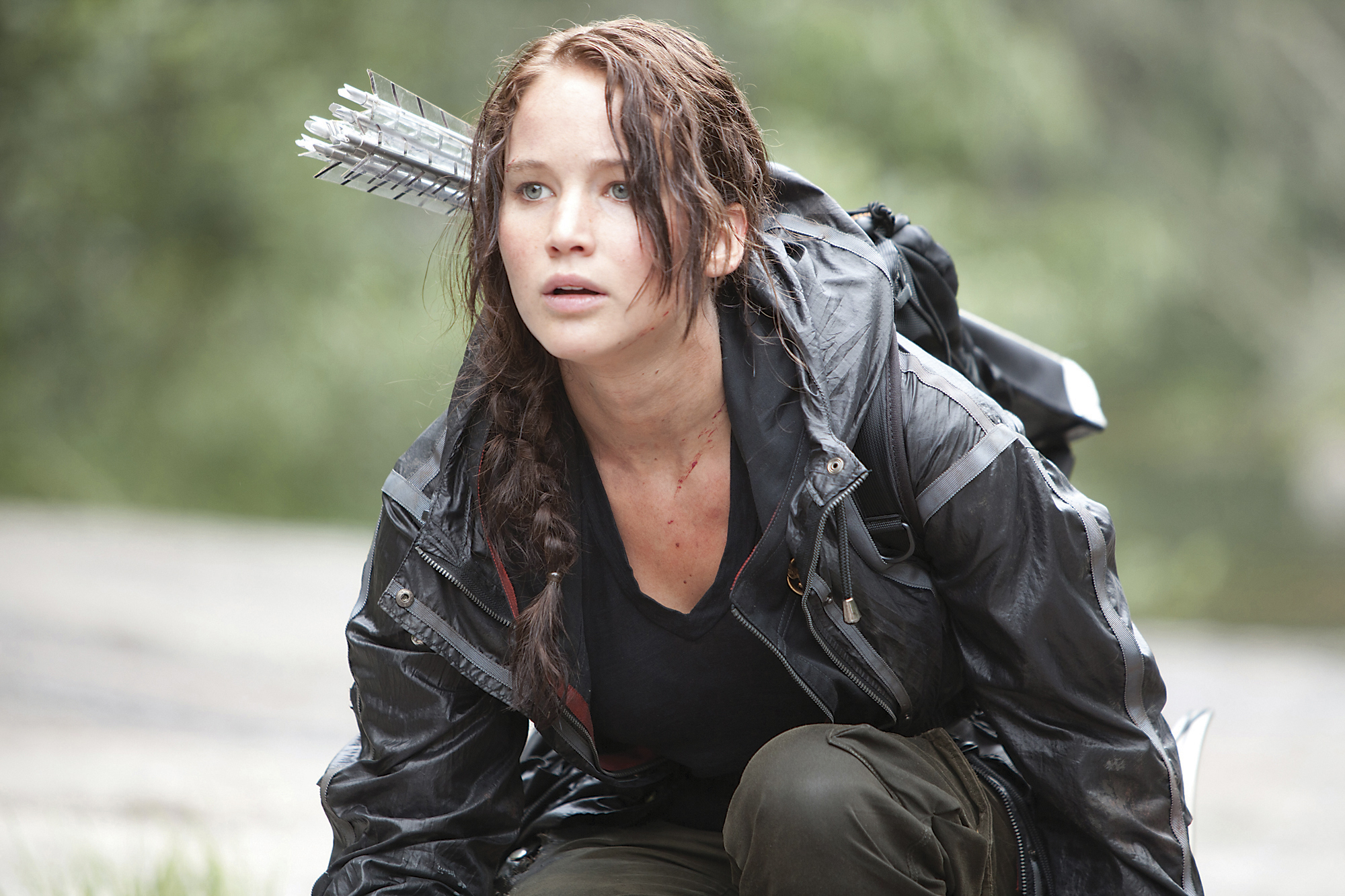'Hunger Games' movie, based on hugely popular books, opens today
Friday, January 1, 1904
In a dystopian world, in which citizens live under the rule of an oppressive government, children are forced to compete to the death in an annual competition. The winner -- the last one standing -- will receive money and food for his or her district, or state.
This is the world of "The Hunger Games," created by author Suzanne Collins and being brought to life on the big screen starting today.
Unlike another recent literary phenomenon, the "Twilight" series about vampires and werewolves, "The Hunger Games" raises issues far beyond the scope of "What boy shall I choose?" or "What is worth sacrificing for love?"
Instead, the Collins novels focus on the roles of government and citizens, cultural issues and the role of the media.
The Hunger Games are an extreme reality television show. The movie's tagline -- "The world will be watching" -- refers to the cameras capturing the games and the manner in which the Capitol -- the ruling government -- forces all citizens to watch the progression. Districts can send (increasingly expensive) survival materials to tributes, or participants, to help keep them alive, much like voters keep contestants going on "Dancing With the Stars."
"If things went horribly wrong in the U.S., we could probably see something like (the Hunger Games) coming out of it," said Colleen Harris, who will be teaching a fall seminar, titled "Reality TV in Literature: The Hunger Games & Its Predecessors" at the University of Tennessee at Chattanooga. "We've seen the stakes of reality TV increase."
In the course, she said, she plans to discuss the ethics of the premise.
"I have no doubt it was meant to be a spoof or a satire of that whole [reality television] genre," said Louise Freeman, a Chattanooga native and professor of psychology at Mary Baldwin College in Staunton, Va. Freeman read the books with her 15-year-old daughter.
She said the two of them have disagreed on how the cameras might affect the relationship between Katniss, the 16-year-old heroine of the books, and Peeta, her male counterpart in the Games.
"Something that is that contrived and that put in the public eye is probably not going to make it," said Freeman, referring to the burgeoning romance that takes place in the arena. "As long as she and Peeta are public figures, she can't know if anything between them is real or not."
Indeed, Katniss thinks about the two boys in her life -- Peeta and her friend/hunting partner from home, Gale -- but they are tertiary concerns to survival and to taking care of her family and fellow citizens of District 12.
Rachel Lingerfelt, a seventh-grader at the Center for Creative Arts, said that the book is "about Katniss' struggle against the Capitol and with herself internally," while "Twilight," she said, "is pretty much saying you need to have a boyfriend to be happy and you can't just be on your own."
Rachel and her classmates will be taking a field trip today to see the movie, along with the sixth-grade class. Following the viewing, said CCA teacher John Echols, the students will examine some of the nation's founding documents, including the Preamble to the Constitution, and comparing them to the government in Panem, the fictional world that exists in the aftermath of an undefined apocalypse that destroyed North America.
"These books are so important to kids today because they learn more about what the government can turn into and what our country can become if we let horrible things happen," said Rachel. "We need to make sure to save our country instead of letting it fall down."
Echols noted the many social and political questions Collins brings up -- of war, of the role of media and of government.
"Dissatisfaction has become a cultural thing," he said. "The Occupy movement could be seen as a predecessor for people standing up against their government."
He also noted the strong female protagonist, which is valuable to the student body as CCA is, he said, about 68 percent female.
"I hope all the girls will see her as a strong woman who is not going to let oppressors have their way with her, whether those oppressors are a fictitious, futuristic government or the boy in the backseat of a car," he said.
Freeman said she saw similarities between Katniss Everdeen and another popular young female literary character of the past decade.
"Katniss is much more of a Hermione (Granger, of the "Harry Potter books) type character in terms of her independence, her intelligence, her ability to stand next to the boys, fight alongside them, work with them, as opposed to mooning over them and longing for them," she said.
